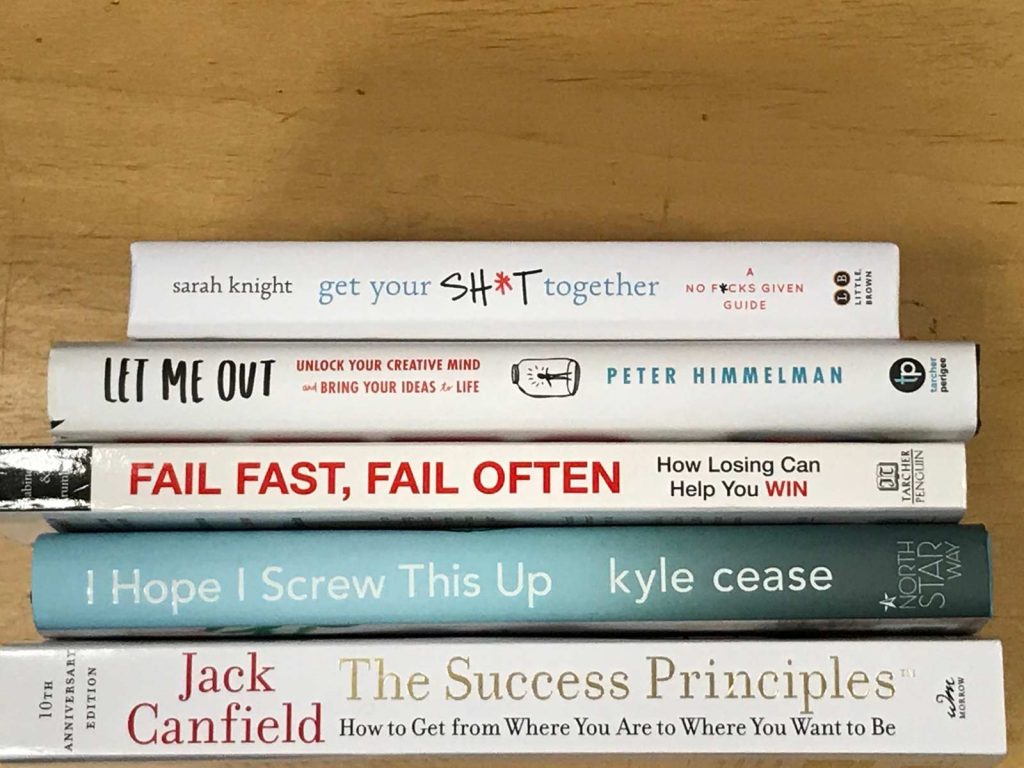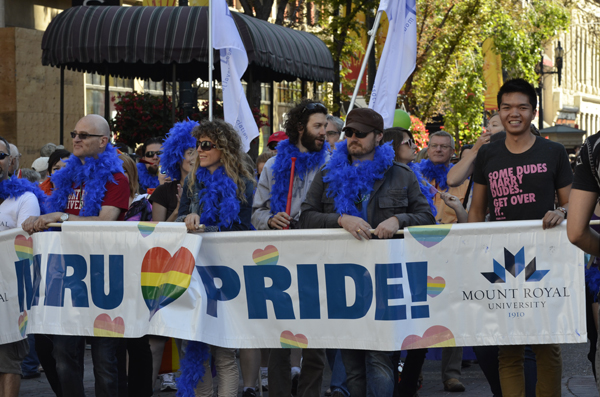A guide to self-improvement
Self-help books that will actually make your life better
By Sabrina Harmata, Staff Writer
Life is hard. There’s no doubt about it. Lucky for us, there are some self-help books out there that give good advice on work, happiness and how to live a satisfying life in general. Self-help books sometimes get a bad reputation since, in our society, asking for help is seen as a weakness. This is not true. In fact, these people are strong enough to stay dedicated to self-improvement. The best thing about self-help books is if you’re uncomfortable asking anyone for help, you can still receive useful advice without anyone knowing. Here are some good books to start with:
Get Your Sh*t Together by Sarah Knight
Of all the books on this list, Get Your Sh*t Together is probably the most relevant to students. In an age of Netflix and procrastination, Knight encourages us to organize the things in our lives (ie. day to day chores, work, health — both physical and mental, etc.) in order to build a better future and live our best lives. In her author’s note, Knight classifies her book not as a self-help book, but as, “more of a let-me-help-you-help-yourself-
The Success Principles by Jack Canfield
In his book, Canfield, co-creator of Chicken Soup for the Soul, gives advice on how to have the most successful life, both professionally and personally. Canfield strives to teach you how to deal with day to day struggles, enjoy your life and raise your self-esteem so you can achieve the goals you set out for yourself. Outlining 67 principles proven to increase success, Canfield cannot spell his advice out any more clearly than he already has. Reading this book will not only help you conquer your goals, it will help you enjoy yourself as you do it.
Self-Compassion by Kristin Neff, Ph.D.
Coming from more of a psychological perspective, Neff examines the problem with searching for high self-esteem: there will always be someone more successful than you who has the power to make you feel inadequate. Instead of searching for self-esteem, Neff urges her readers to find self-compassion. Pulling evidence from her own research, Neff proves that people who show compassion to themselves are happier and are less affected by setbacks, allowing them to be more productive. Neff will teach you to be less critical of yourself so you can reach your full potential without the hindering anxiety that comes with the never-ending search for self-esteem.
I Hope I Screw This Up by Kyle Cease
As you can guess from the title, this isn’t a typical self-help book. Following his own personal stories and reflecting on these situations and on life in general, Cease debunks the myth that most of us give in to: happiness is always contingent on something else, some external source. I Hope I Screw This Up offers an alternative, superior reality, one in which happiness is not only in the future, but also in the present. Cease uses humour to encourage his readers to accept their fears of failure instead of denying them, arguing these feelings hold them back experiencing a happiness that is innate and independent from any other aspect of their lives.
Let Me Out by Peter Himmelman
Another unconventional self-help book, Let Me Out endeavors to help people harness their creativity in realizing their goals through exploring Himmelman’s personal experiences with creating music. Himmelman examines the biggest problems with reaching the goals we set for ourselves: sometimes they’re unrealistic, sometimes we don’t give ourselves enough time and sometimes we complete them to make others happy when we should be worrying about ourselves. In order to fix this, Himmelman suggests we think long and hard about what we want and separate it into manageable pieces so we don’t get discouraged if we can’t complete the unrealistic goal we’ve set. This book will allow you to reach your creative potential no matter what it is you set out to achieve.
We Need to Talk by Celeste Headlee
In this book, Headlee analyses the reason for our generation’s communication problems: today, we communicate more from behind screens than we do in person. According to Headlee, this communication barrier has a great impact on our society in that it causes a disconnect between people. Throughout her book, Headlee gives advice on how to communicate more effectively amongst each other, starting with putting your phone away when you engage in conversation. In reading this book, you will find yourself a better communicator and will ultimately improve your overall perspective on life.






